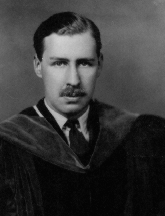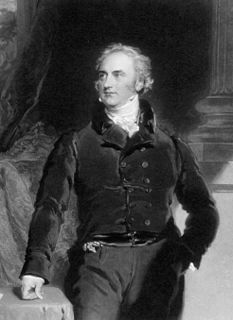A Quote by Ralph Waldo Emerson
Evil is merely privative, not absolute: it is like cold, which is the privation of beat.
Related Quotes
Evil denotes the lack of good. Not every absence of good is an evil, for absence may be taken either in a purely negative or in aprivative sense. Mere negation does not display the character of evil, otherwise nonexistents would be evil and moreover, a thing would be evil for not possessing the goodness of something else, which would mean that man is bad for not having the strength of a lion or the speed of a wild goat. But what is evil is privation; in this sense blindness means the privation of sight.
If there is no absolute moral standard, then one cannot say in a final sense that anything is right or wrong. By absolute we mean that which always applies, that which provides a final or ultimate standard. There must be an absolute if there are to be morals, and there must be an absolute if there are to be real values. If there is no absolute beyond man's ideas, then there is no final appeal to judge between individuals and groups whose moral judgments conflict. We are merely left with conflicting opinions.
Privative appropriation and domination are thus originally imposed and felt as a positive right, but in the form of a negative universality. Valid for everyone, justified in everyone's eyes by divine or natural law, the right of privative appropriation is objectified in a general illusion, in a universal transcendence, in an essential law under which everyone individually manages to tolerate the more or less narrow limits assigned to his right to live and to the conditions of life in general.
Evil does not exist sir, or at least it does not exist unto itself. Evil is simply the absence of God. It is just like darkness and cold, a word that man has created to describe the absence of God. God did not create evil. Evil is not like faith, or love that exist just as does light and heat. Evil is the result of what happens when man does not have God's love present in his heart. It's like the cold that comes when there is no heat or the darkness that comes when there is no light.
Merely to resist evil with evil by hating those who hate us and seeking to destroy them, is actually no resistance at all. It is active and purposeful collaboration in evil that brings the Christian into direct and intimate contact with the same source of evil and hatred which inspires the acts of his enemy. It leads in practice to a denial of Christ and to the service of hatred rather than love.
In this world, there is no absolute good, no absolute evil," the man said. "Good and evil are not fixed, stable entities, but are continually trading places. A good may be transformed into an evil in the next second. And vice versa. Such was the way of the world that Dostoevsky depicted in The Brothers Karamazov. The most important thing is to maintain the balance between the constantly moving good and evil. If you lean too much in either direction, it becomes difficult to maintain actual morals. Indeed, balance itself is the good.
I believe that ideas such as absolute certitude, absolute exactness, final truth, etc. are figments of the imagination which should not be admissible in any field of science... This loosening of thinking seems to me to be the greatest blessing which modern science has given to us. For the belief in a single truth and in being the possessor thereof is the root cause of all evil in the world.
The means by which I preserve my own health are, temperance, early rising, and spunging the body every morning with cold water, a practice I have pursued for thirty years ; and though I go from this heated theatre into the squares of the Hospital, in the severest winter nights, with merely silk stockings on my legs, yet I scarcely ever have a cold.
When one has once accepted and absorbed Evil, it no longer demands the unfitness of the means. The ulterior motives with which youabsorb and assimilate Evil are not your own but those of Evil.... Evil is whatever distracts. Evil knows of the Good, but Good does not know of Evil. Knowledge of oneself is something only Evil has. One means that Evil has is the dialogue.... One cannot pay Evil in installments--and one always keeps on trying to.
[Georg Cantor was the first to prove that there could be a series of infinities; that infinities come in an infinite number of sizes.] Thus Cantor's Absolute is a perfect image for what we experience of God. When I speak of a Big Enough God I am not merely thinking of an Infinite God, but the God of infinities, the Absolute, which either chooses to reveal itself or remains veiled in mystery. Modern mathematics does begin to feel like the language that God talks.









































